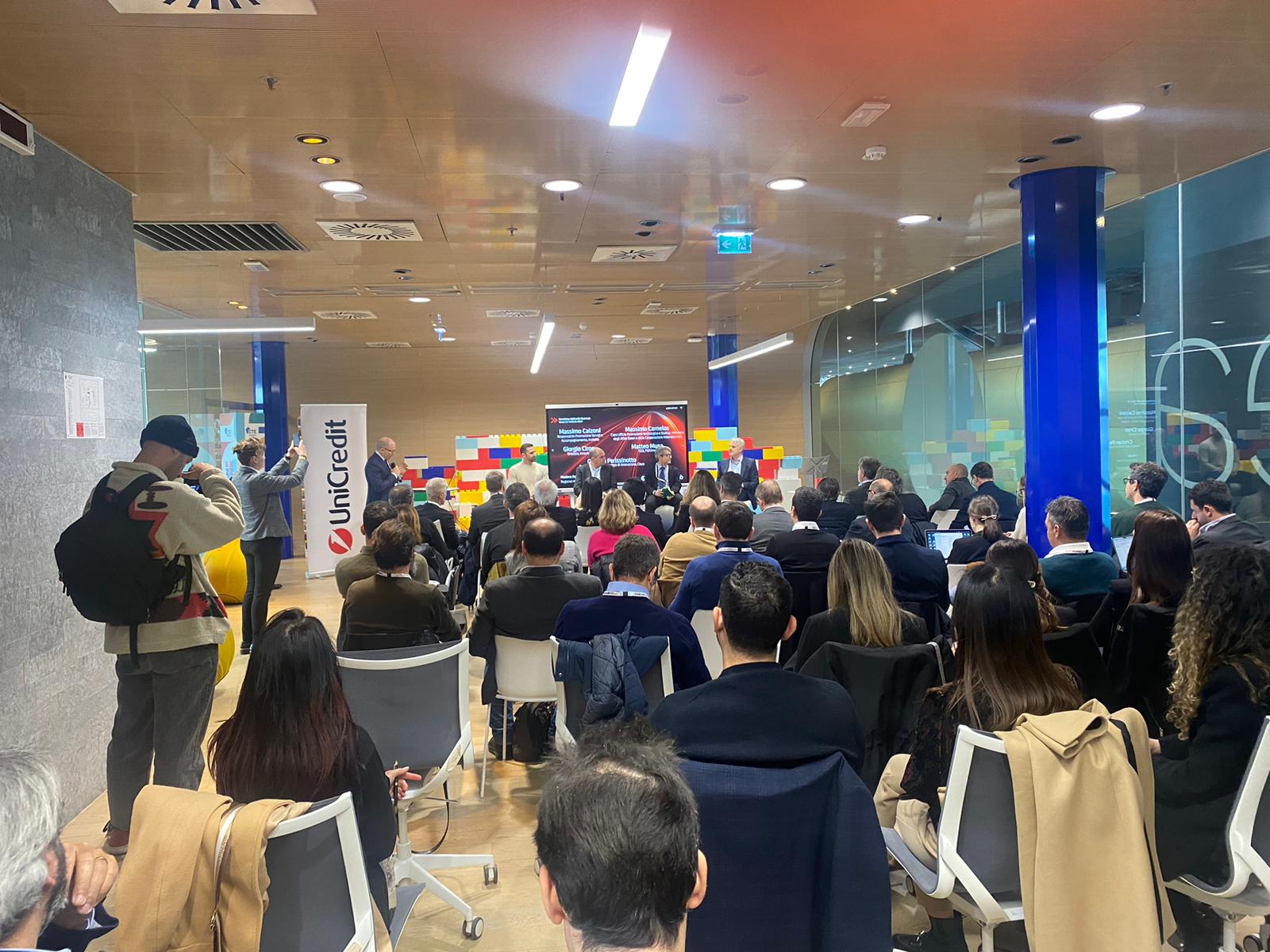The Houses of Emerging Technologies (CTE) are research and experimentation centers that support the creation of startups and technology transfer to SMEs in favor of the use of blockchain, internet of things (IoT) and artificial intelligence. The aim is to create a network of centres of excellence throughout the country, dedicated to research, innovation and technology transfer in specific emerging sectors. In this article you will find the latest insights. UniCredit Start Lab is the banking Group’s business and innovation platform dedicated to high-potential Italian “Tech” startups and SMEs. “In its 10-year history, it has evaluated about 8,000 innovative startups and of these, 560 have been actively supported through the platform,” said Roberto Fiorini, Regional Manager Central Italy at UniCredit. “Of the 700 projects presented in 2023, about 13% come from our Central Region (Lazio, Sardinia, Molise and Abruzzo), a geographical area that expresses over 2600 innovative startups and SMEs.” “The platform selects and accompanies start-ups towards growth paths, increasing their business opportunities, managerial development and visibility on the market,” said Giusy Stanziola, UniCredit Start Lab & Development Programs. “A market that increasingly requires attention to ESG issues, on which the bank has long had a specific focus.” We also dealt with the European regulations that companies will soon have to adopt in terms of sustainability, in this article. Among the participants in the event organized by Rome, the Councilor for Security Policies, Productive Activities and Equal Opportunities of Roma Capitale, Monica Lucarelli, underlines how the CTE of the capital is to all intents and purposes “a real startup with the aim, not to go and take away from private entities their space, that is, that of acceleration of startups and technology transfer, that they have been doing for much longer than us and certainly better than us, but being able to put together, to create those connections that in fact the system needs to grow and develop. But above all, since we are a municipal administration, our goal is to bring together the subjects that deal with innovation: the business world, accelerators, institutions, such as universities and research centers. Subjects who may not have been used to collaborating with each other, and instead in this space they find elements of common interest that they can develop“.
Opportunities
Massimo Carnelos, head of the Technological Innovation and Startups Office, Ministry of Foreign Affairs and International Cooperation, explains the milestones of his cabinet, specifying how his “mission is the same as that of the government” or “companies: from the largest to the smallest, where the largest often succeed on their own and the smallest instead need support, and the smaller they are, the more they need help, and in an open economic environment like ours, the company only survives if it feeds on it.” Carnelos added that internationalization is “one of the imperatives of any young entrepreneur, be it a startup, an innovative SME,” and that “internationality is a fact that must be in the DNA from day zero, because without foreign countries not even the startup has a future.” His office, he reiterated, is committed to “bringing countries and companies to Italy to ensure that Italy becomes a place where innovation is made, because there are advantages.” And to do so, given that today “it is very difficult for an American fund to invest in Italy” according to Carnelos “to be attractive it is necessary to be able to bring – to international funds – scalable startups at an advanced stage with an Italian VC who acts as their godfather, godmother”. Among the startups to be presented to funds and with which to compete with other countries, Carnelos then highlighted how those in the deeptech sector could represent yet another train that Italy must not miss. Massimo Calzoni, head of service promotion and accompaniment, Invitalia, describes how Invitalia is not only a manager of tax incentives, but also a tool for services to citizens, recalling that beyond tools such as
Smart & Start
, there are many others, for example
Resto al sud
. With regard to incentives in favour of youth entrepreneurship, we published a detailed in-depth analysis on Startupbusiness some time ago. Cristian Perissinotto, technical manager of Cisco’s innovation group, talks about the synergies between corporate and startups, where the latter must absolutely have “an industrial product with an industrial approach that is configured as a plug and play, with characterizations that can be integrated with a large corporation and where it is not easy”. If internationalization is a decisive element for a startup, to make it compete or to present it to an international fund, the comment of Matthew Musa, CEO of Fitprime, the only startup present at the table, outlines the trait d’union of the theme: “Fitprime is a bit of a startup in contrast to what has been said so far: Fitprime at the moment is deliberately a startup with a national vocation because you always have to deal with the logic of each country and to date having an extremely customized project with Italian logic is allowing us to scale our market very quickly. Internationalization, if not done at the right time, is often one of the main reasons for the failure of startups”. Yes, if the product is not mature and not supported by well-structured financial logic, if the reason is to raise funding because the fund has an international vocation, if the sector does not allow it, then you end up burning the cash and the opportunities.
ALL RIGHTS RESERVED ©
